Iran vows 'crushing revenge' after commander Soleimani killed in US air strike
Top Iraqi commander Abu Mahdi al Muhandis, an adviser to Soleimani, was also killed in the attack
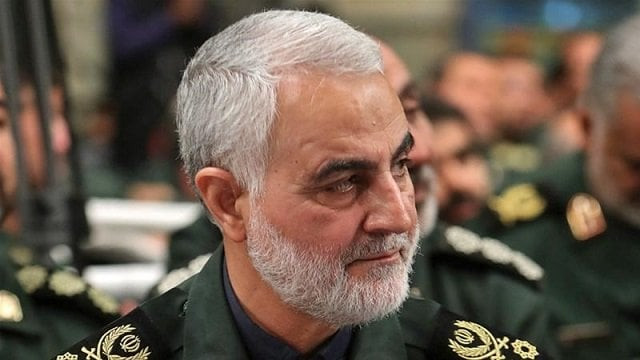
Top Iraqi commander Abu Mahdi al Muhandis, an adviser to Soleimani, was also killed in the attack, a rebel spokesman said.
The high-profile assassinations are likely to be a massive blow to Iran, which has been locked in a long conflict with the United States that escalated sharply last week with the storming of the US embassy in Iraq by pro-Iranians following a US air raid on Kataib Hezbollah, founded by Muhandis.
"At the direction of the President, the US military has taken decisive defensive action to protect US personnel abroad by killing Qassem Soleimani,” the Pentagon said in a statement.
"This strike was aimed at deterring future Iranian attack plans," it added.
US officials, speaking on the condition of anonymity, said that Soleimani had been killed in a drone strike.
Iran's Revolutionary Guards confirmed in a statement that Soleimani was killed. "Honoured supreme commander of Islam, Haj Qassim Soleimani, was martyred this morning after a life of struggle in an attack by American helicopters," the Revolutionary Guards said in a statement read on state TV.
Ahmed al Assadi, a spokesman for Iraq's Popular Mobilisation Forces (PMF) blamed the United States and Israel.
"The American and Israeli enemy is responsible for killing the mujahideen Abu Mahdi al Muhandis and Qassem Soleimani," he said.
Iraqi paramilitary groups said on Friday that three rockets hit Baghdad International Airport, killing five members of Iraqi paramilitary groups and two "guests".
The rockets landed near the air cargo terminal, burning two vehicles, killing and injuring several people.
Local rebel commander Abu Muntathar al Hussaini told Reuters:
"Haj Soleimani and Abu Mahdi al Muhandis were riding in one vehicle when it was struck by two successive guided missiles launched from an American helicopter while they were on their way from the arrivals hall on the road that leads out of Baghdad Airport."
He said the second vehicle was carrying bodyguards from the PMF and was hit by one rocket.
"The American criminals had detailed information on the convoy’s movements."
Oil prices were up $3 on the news.
Reactions
Iran's supreme leader Ayatollah Ali Khamenei vowed "severe revenge" after the United States killed the commander of the Islamic republic's Quds Force, General Qasem Soleimani, in Baghdad.
"Martyrdom was the reward for his ceaseless efforts in all these years," Khamenei said on his Farsi-language Twitter account in reference to Soleimani, also declaring three days of mourning.
"With him gone, God willing, his work and his path will not be stopped, but severe revenge awaits the criminals who bloodied their foul hands with his blood and other martyrs' in last night's incident."
His efforts & path won’t be stopped by his martyrdom, by God’s Power, rather a #SevereRevenge awaits the criminals who have stained their hands with his & the other martyrs’ blood last night. Martyr Soleimani is an Intl figure of Resistance & all such people will seek revenge. /3
— Khamenei.ir (@khamenei_ir) January 3, 2020
The Iranian nation will honor the memory of the noble Major-General Soleimani & the martyrs with him—particularly the great Abu Mahdi al-Muhandis— & I declare 3 days of mourning across the nation. I condole & congratulate his family. /5
— Khamenei.ir (@khamenei_ir) January 3, 2020
Sayyed Ali Khamenei
Jan 3, 2020
Iran’s top security body, on the other hand, vowed to retaliate in the “right place and time” following the Baghdad strike.
“America should know that its criminal attack on General Soleimani has been the country’s biggest mistake in west Asia, and America will not avoid the consequences of this wrong calculation easily,” the Supreme National Security Council said in a statement.
“These criminals will face severe vengeance… in the right place and time,” it added.
Iranian Foreign Minister Mohammad Javad Zarif said the assassination of Soleimani was "an extremely dangerous and foolish escalation."
"The US bears responsibility for all consequences of its rogue adventurism," he said in a post on Twitter.
US Senator Chris Murphy, said while Soleimani was "an enemy of the United States," the killing could put more Americans at risk.
"One reason we don’t generally (assassinate) foreign political officials is the belief that such action will get more, not less, Americans killed," Murphy said on Twitter.
"That should be our real, pressing and grave worry tonight."
Soleimani was an enemy of the United States. That’s not a question.
— Chris Murphy 🟧 (@ChrisMurphyCT) January 3, 2020
The question is this - as reports suggest, did America just assassinate, without any congressional authorization, the second most powerful person in Iran, knowingly setting off a potential massive regional war?
The justification for the assasination is to “deter future Iranian attacks”.
— Chris Murphy 🟧 (@ChrisMurphyCT) January 3, 2020
One reason we don’t generally assasinate foreign political officials is the belief that such action will get more, not less, Americans killed.
That should be our real, pressing and grave worry tonight.
He called out the people lauding the airstrike saying that they should recall that the worst mistakes global powers make are when they strike militarily in complicated places with few friends, with no consideration of the consequences.
“No one can claim to know with certainty what happens next,” he said.
Former US Ambassador to the UN Nikki Haley said Soleimani was an arch terrorist with American blood on his hands.
"His demise should be applauded by all who seek peace and justice. Proud of President Trump for doing the strong and right thing," she said on her Twitter.
Qassem Soleimani was an arch terrorist with American blood on his hands. His demise should be applauded by all who seek peace and justice. Proud of President Trump for doing the strong and right thing. @realDonaldTrump 🇺🇸
— Nikki Haley (@NikkiHaley) January 3, 2020
Former Commander of Iran's Revolutionary Guards Mohsen Rezaei said that Soleimani joined his martyred brothers, but we will take vigorous revenge on America," Rezaei, who is now the secretary of a powerful state body, said in a post on Twitter.
United Nations
UN Secretary General Antonio Guterres said on Friday the "world cannot afford" another Gulf war, following the killing of Iran's top military commander by a US strike.
"The secretary-general has consistently advocated for de-escalation in the Gulf," a spokesman for Guterres said in a statement.
"This is a moment in which leaders must exercise maximum restraint. The world cannot afford another war in the Gulf."
The United States announced early on Friday that it had killed Qasem Soleimani, the commander of the Iranian Quds Force, in a strike on Baghdad's international airport.
'Charge sheet'
US President Donald Trump claimed that the top Iranian commander killed in a US air strike, Qassem Soleimani, was planning to kill ‘many more’ Americans.
“General Qassem Soleimani has killed or badly wounded thousands of Americans over an extended period of time, and was plotting to kill many more,” Trump wrote in a tweet.
“While Iran will never be able to properly admit it, Soleimani was both hated and feared within the country,” said the US president.
....of PROTESTERS killed in Iran itself. While Iran will never be able to properly admit it, Soleimani was both hated and feared within the country. They are not nearly as saddened as the leaders will let the outside world believe. He should have been taken out many years ago!
— Donald J. Trump (@realDonaldTrump) January 3, 2020
Dramatic escalation
Soleimani's killing marks a dramatic escalation in the regional "shadow war" between Iran and the US and its allies, principally Israel and Saudi Arabia, which could quickly ratchet up tit-for-tat attacks - all the way to the brink of all-out war.
The slain commander's Quds Force, along with its stable of paramilitary proxies from Lebanon's Hezbollah to the PMF in Iraq - battle-hardened rebels armed with missiles - has ample means to launch a multi-barrelled response against its enemies.
In September, US officials blamed Iran for a devastating missiles and drones attack on oil installations of Saudi Aramco, the Saudi state energy giant and world's largest oil exporter. The Trump administration did not respond, beyond heated rhetoric and threats.
Iran, for its part, has absorbed scores of air strikes and missile attacks, mainly carried out by Israel against its fighters and proxies in Syria and Iraq.
But analysts say Iran is likely to respond forcefully to the targeting of Soleimani, who it has built into a legend as its influence has spread across the region in the wake of the US-led invasion of Iraq in 2003 and subsequent occupation
Soleimani, who has led the foreign arm of the Revolutionary Guards and has had a key role in fighting in Syria and Iraq, acquired celebrity status at home and abroad.
The United States and Iran's regional foes Saudi Arabia and Israel have struggled to keep Iran's influence in check.
Soleimani survived several assassination attempts against him by Western, Israeli and Arab agencies over the past two decades.
His Quds Force, tasked with carrying out operations beyond Iran's borders, shored up support for Syrian President Bashar al-Assad when he looked close to defeat in the civil war raging since 2011 and also helped defeat Islamic State in Iraq.
He became head of the Quds Force in 1998, a position in which he kept a low profile for years while he strengthened Iran's ties with Hezbollah in Lebanon, Syria's government and Shia rebel groups in Iraq.
Muhandis, who was killed with Soleimani, oversaw Iraq’s PMF, an umbrella grouping of paramilitary groups mostly consisting of Iran-backed Shias’ that was formally integrated into Iraqi armed forces.
Kataib, which received battlefield training from Lebanon’s Hezbollah, has long targeted US forces and was one of the earliest groups to dispatch fighters to Syria to support Assad.
In 2009, Washington declared Kataib Hezbollah a foreign terrorist organisation, saying it threatened stability in Iraq and declared Muhandis a terrorist. In 2007, a Kuwaiti court sentenced him to death in absentia for his involvement in the 1983 US and French embassy bombings in Kuwait.




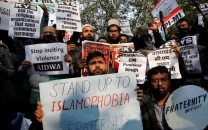
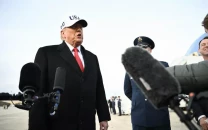
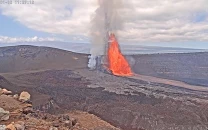

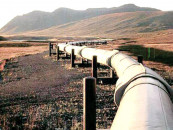










COMMENTS
Comments are moderated and generally will be posted if they are on-topic and not abusive.
For more information, please see our Comments FAQ